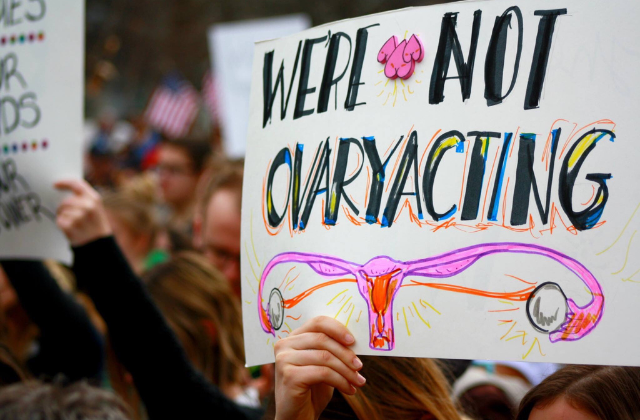The state of Mississippi last week officially asked The U.S. Supreme Court to reverse its landmark 1973 abortion decision Roe v. Wade. This comes after the high court in May agreed to consider whether state laws that ban abortion prior to fetal viability are unconstitutional. Abortion rights activists argue that low-wage earners are most at risk of being negatively impacted by this challenge to Roe, CNN reports.
"My greatest fear is that we are moving backwards, we are being taken backwards," Shannon Brewer, director of Jackson Women’s Health Organization, Mississippi’s last abortion clinic, told CNN. She added that the average abortion costs between $500 and $600, which “means we have fought all of these years for nothing, and no one listened because they still don’t think women have the right to make this decision.”
Mississippi’s strict abortion laws—which ban nearly all abortions after 15 weeks of pregnancy with no exception for rape or incest—have already hurt those struggling to make ends meet. As CNN reports, low-income people “represent 75% of abortion patients, according to the Guttmacher Institute, a research group that supports abortion rights.” According to 2019 Census data, Mississippi has one of the highest percentages of population that lives below the poverty level.
Reports CNN:
Since Roe was decided, there have been 1,327 abortion restrictions enacted in the United States. In 2021 alone, there were 97 new restrictions, which represents the highest number in one year since Roe was decided. Additionally, according to Guttmacher, there are 10 states with so-called trigger laws already on the books, which would immediately ban abortion if Roe v. Wade were overruled.
"In the next year, if Roe is overturned then you are looking at basically the South, the Plains states and the Midwest where abortion access would be dramatically reduced because of bans that have already been put in place but are right now blocked by courts," Elizabeth Nash, state policy analyst at Guttmacher, told CNN.
Brewer, whose clinic is being represented in court by the Center for Reproductive Rights, told CNN that most of her patients won’t have enough money to travel out of Mississippi for necessary procedures. "These women can barely afford to come here, much less go out of state," she said.
Brewer also told CNN that her state doesn’t have its priorities straight. "Mississippi should concentrate more on why we are the last out of the 50 states in education right now, rather than focus on a woman’s right to choose when she gets pregnant," she said. "If they care so much about children, like they claim to, why aren’t they focused on education?"
